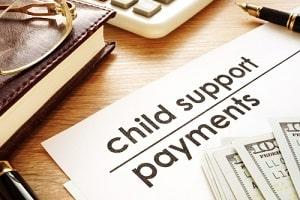Recent Blog Posts
How Can I Reduce the Chances of My Will Being Challenged After My Death?
 Deciding how your property should be distributed upon your death is not the most pleasant topic to consider. However, proper estate planning is a crucial step that every individual should take regardless of age or wealth. If you have decided to create a last will and testament, you may be concerned about your will being challenged or contested. When a person contests a will, they challenge the validity of the will in court. If the will contest is successful, the directions contained in the will may be set aside and instead the deceased person’s property is distributed according to intestate laws. There is no way to guarantee that your estate plans will not be contested, but there are actions you can take that will significantly reduce the chances of a will contest.
Deciding how your property should be distributed upon your death is not the most pleasant topic to consider. However, proper estate planning is a crucial step that every individual should take regardless of age or wealth. If you have decided to create a last will and testament, you may be concerned about your will being challenged or contested. When a person contests a will, they challenge the validity of the will in court. If the will contest is successful, the directions contained in the will may be set aside and instead the deceased person’s property is distributed according to intestate laws. There is no way to guarantee that your estate plans will not be contested, but there are actions you can take that will significantly reduce the chances of a will contest.
Do Not Put Off Estate Planning Until Old Age or Poor Health
Many people are under the false assumption that they do not need to worry about their will or other estate planning tool until they are much older or have a major health concern. However, waiting too long to start estate planning could result in your will being contested due to lack of testamentary capacity. The best way to avoid this is to create your will before you have any type of major mental or physical health issues. Once you have drafted your will, talk to your family about what to expect when you pass away. When beneficiaries know the contents of your will in advance, they may be less likely to contest the will out of shock.
What Can Child Support Payments Be Used for in a Divorce?
Child support refers to the money paid by one parent to the other parent to help financially support their child after the parents get a divorce. However, these types of payments may also be appropriate for couples who never married but had a child together. Typically, child support is paid to the parent who was allocated the majority of the parenting time with the couple's child. In Illinois, child support is based on both parents' net incomes, and an "income shares model" is used to calculate the amount of the payments. Child support arrangements must be approved by the court. Payments are typically made on a monthly basis, and a parent can face penalties if the support payments are late or if support is unpaid.
Child Support Uses
Overall, child support is intended to maintain the child’s well-being and guarantee all of his or her basic needs are met. The basic child support obligation determined using the income shares method is meant to cover the following types of expenses:
Divorce, Parentage, Order of Protection and Estate Filings in Illinois During the COVID-19 Shut-Down
 Courts in Cook County and the surrounding collar counties in Illinois have taken measures in response to Governor Pritzker’s shelter-in-place order in an attempt to enforce social distancing guidelines and help combat the spread of the coronavirus. At this time courts have ceased conducting most regularly scheduled day-to-day activities until at least the end of April. Cook County courts will not resume regular activity through May 15, 2020.
Courts in Cook County and the surrounding collar counties in Illinois have taken measures in response to Governor Pritzker’s shelter-in-place order in an attempt to enforce social distancing guidelines and help combat the spread of the coronavirus. At this time courts have ceased conducting most regularly scheduled day-to-day activities until at least the end of April. Cook County courts will not resume regular activity through May 15, 2020.
Notwithstanding the above, courts are still accepting new cases as well as filings into pre-existing cases during this time. Some courts, such as Cook County, also have processes in place to take care of routine matters dealing with issues such as Temporary Parenting Time, Temporary Spousal and/or Child Support and Agreed Orders, which can take care of important preliminary issues that move the case towards a final resolution. Additionally, if you have an uncontested matter, meaning that there is a complete agreement between the parties, there is a possibility to have a final judgment entered during this time to resolve the case.
What if My Child Refuses Parenting Time with My Ex-Spouse?

If you are a parent who is divorced or legally separated, you are likely familiar with the court-approved parental responsibilities you and your ex may have spent hours trying to resolve. A parenting plan is a legal document that outlines child-related issues such as with whom your child will live, who has decision-making authority regarding issues such as children's education and medical care, and more. Unfortunately, your child may not be too happy about the decisions made during your divorce, and they may state that they do not wish to spend parenting time (visitation) with your ex-spouse. However, even if your child is reluctant to spend time with his or her other parent, you will be required to follow the parenting time schedule set down in the parenting plan, and you may face penalties for failing to fulfill the court's orders.
The Reasons Behind the Refusal
Addressing Disputed Estate Documents Following a Loved One’s Death
 Processing a loved one’s death is hard enough on its own. There is no measure for the hurt and overwhelming range of emotions that comes with saying goodbye to someone near and dear to your heart and family. When it comes time to handling wills and other estate documents following the death, the very last thing anyone wants to deal with is an estate dispute.
Processing a loved one’s death is hard enough on its own. There is no measure for the hurt and overwhelming range of emotions that comes with saying goodbye to someone near and dear to your heart and family. When it comes time to handling wills and other estate documents following the death, the very last thing anyone wants to deal with is an estate dispute.
Whether you discover an inaccuracy or you are simply having a hard time believing the information found in the document to be fair, examining a loved one’s wishes and estate arrangements after they are gone can be overwhelming, to say the least. Deciding to mount a legal challenge can be even more difficult.
Factors to Consider
If you or member of your family have come to the conclusion that it is necessary to dispute a certain estate document, you will need to think about:
- The nature of the document and how it was created - If your loved one created a certain document on their own with no legal help, there is a chance that the document will not stand in a court of law. Sadly, when estate documents are created in a do-it-yourself manner, they are less likely to carry any weight when presented in court as official, enforceable orders;
How Does the COVID-19 Affect Child Support in Illinois?
 The Coronavirus Pandemic has created a financial crisis for many families throughout Illinois. Workers have already been laid off or faced severe reductions in hours. New unemployment claims in Illinois increased by 178,000, or 1,833% for the week ending March 28, 2020, from the same week one year earlier. Many families in Illinois will struggle to pay their ordinary and necessary living expenses including rent, mortgage, and other bills. This financial hardship will be especially difficult for divorced or divorcing parents in Illinois to pay their court ordered child support.
The Coronavirus Pandemic has created a financial crisis for many families throughout Illinois. Workers have already been laid off or faced severe reductions in hours. New unemployment claims in Illinois increased by 178,000, or 1,833% for the week ending March 28, 2020, from the same week one year earlier. Many families in Illinois will struggle to pay their ordinary and necessary living expenses including rent, mortgage, and other bills. This financial hardship will be especially difficult for divorced or divorcing parents in Illinois to pay their court ordered child support.
In Illinois, child support and the modification of child support are governed by the Illinois Marriage and Dissolution of Marriage Act. Under the Act, once entered by a court, child support orders continue and remain in effect even though you may not be financially able to pay your child support. To mitigate economic harm as much as possible, payors of child support must take immediate action to file a motion for the modification of child support upon the occurrence of substantial change of circumstance including, unemployment, reduction of income or other substantial change in ability to pay child support. In Illinois, modifications of child support are retroactive to the date the moving party filed and served notice of the motion to modify child support to the other parent.
Is My Marital Home Automatically Marital Property in an Illinois Divorce?
 When you got married, did you and your new spouse move into a home that one of your already owned or did you find a new house? Have you purchased a new home since your marriage? The answers to those two questions could directly impact the division of property process should you and your spouse ever divorce.
When you got married, did you and your new spouse move into a home that one of your already owned or did you find a new house? Have you purchased a new home since your marriage? The answers to those two questions could directly impact the division of property process should you and your spouse ever divorce.
Prior Ownership
According to the law in Illinois, all assets that were owned by either spouse prior to the marriage are considered individual property and are not subject to division upon divorce. Determining ownership is fairly easy for smaller items. For example, if you paid cash for a washing machine before you got married, you own it. Larger purchases and investments are a bit more complicated. Let’s assume that you made a $25,000 down payment on a house, for example, but you are only 15 years into a 30-year mortgage. Technically, the mortgage lender still owns about half of the house.
5 Tips for How to Have a Strong Relationship with Your Stepchild

The United States is a nation in which a majority of families are divorced. However, many people find love again and choose to remarry. According to the U.S. Census Bureau, approximately 1,300 new stepfamilies are formed every day. Becoming a stepparent can be stressful and intimidating. However, with realistic expectations and a certain approach to building a relationship, a sustaining bond can be created. In some cases, a stepparent may even wish to legally adopt his or her stepchild. It is important to have an experienced family law attorney assist you throughout the legal process.
Blended Families
A remarriage often involves more than just a couple. One or both parents may have children from their previous marriages or relationships. If you are getting remarried after a divorce, and you will have a stepchild, keep these tips in mind for a smoother transition for everyone involved:
Now May Be the Right Time to Consider Appointing a Medical Power of Attorney
 Coronavirus concerns has many people putting estate plans at a much higher priority than normally. Although the chances of becoming seriously ill or dying from the virus are low for most Americans, it may still be a good idea to start implementing an estate plan. One important aspect of a comprehensive estate plan is a medical power of attorney or power of attorney for healthcare. By appointing a medical power of attorney for healthcare, you ensure that your medical decisions will be made by someone you trust if you cannot make these decisions on your own.
Coronavirus concerns has many people putting estate plans at a much higher priority than normally. Although the chances of becoming seriously ill or dying from the virus are low for most Americans, it may still be a good idea to start implementing an estate plan. One important aspect of a comprehensive estate plan is a medical power of attorney or power of attorney for healthcare. By appointing a medical power of attorney for healthcare, you ensure that your medical decisions will be made by someone you trust if you cannot make these decisions on your own.
Power of Attorney for Healthcare Basics
Many people assume that estate planning is only necessary if they are sick or elderly, however, it is best to create an estate plan while you are healthy and able to make clear decisions. An unexpected accident or illness can happen to anyone at any time. If you were seriously hurt or sick and could not tell doctors what your medical wishes were, you would probably want a trusted loved one who knows your preferences to make these decisions on your behalf. A healthcare power of attorney allows you to choose an agent who will be responsible for making your healthcare decisions if you cannot do so yourself. The term "power of attorney for healthcare" is often used to refer to the legal document as well as the person acting as your agent.
3 Strategies for Coping During a Challenging Child Custody Dispute
 Divorce involving children can be stressful regardless of the situation, but divorce involving parents who disagree on child custody issues can be especially difficult. In Illinois, the term “child custody” has been replaced with the “allocation of parental responsibilities” and “parenting time.” Divorcing parents are expected to agree on a strategy for how parental responsibilities and parenting time will be managed after the divorce in their official Illinois “parenting plan.”
Divorce involving children can be stressful regardless of the situation, but divorce involving parents who disagree on child custody issues can be especially difficult. In Illinois, the term “child custody” has been replaced with the “allocation of parental responsibilities” and “parenting time.” Divorcing parents are expected to agree on a strategy for how parental responsibilities and parenting time will be managed after the divorce in their official Illinois “parenting plan.”
However, many parents do not see eye-to-eye regarding this plan. Parents may disagree on which parent will make major decisions about the child’s life and upbringing, the amount of time that the child spends with each parent, household rules, and more. If you are in a contentious child-related legal dispute, the following tips may help you to cope.













